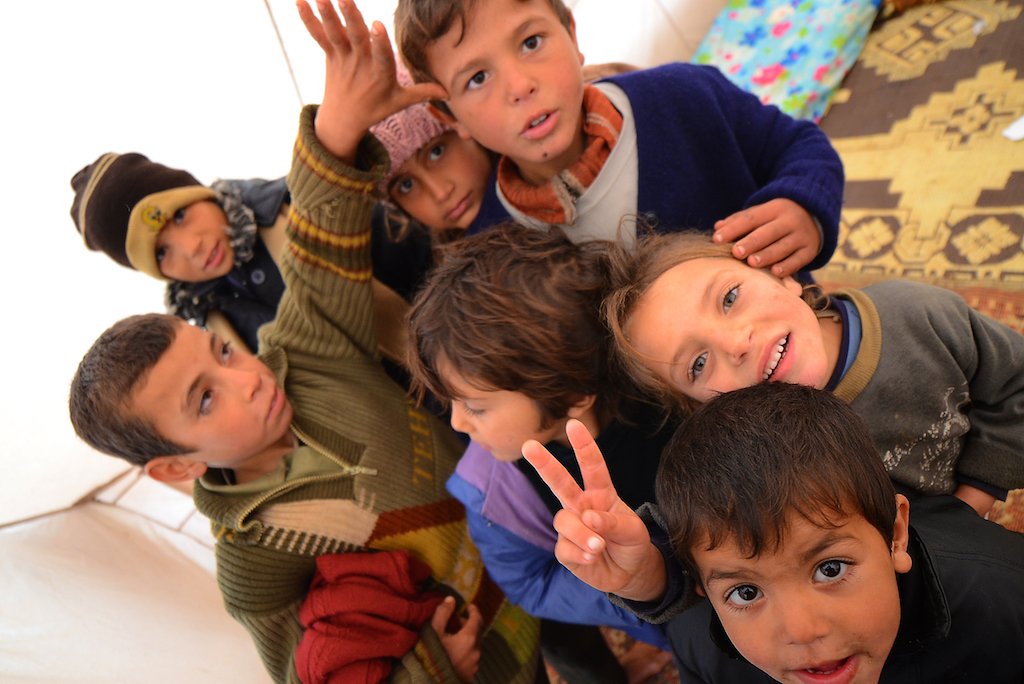At least 40 percent of 1,623,000 Syrian children, who are refugees, are not going to school in Turkey, according to a report by Turkish edition of German Deutsche Welle on Tuesday.
According to the data given by the General Directorate of Immigration under the Turkish Interior Ministry, there are 3,424,000 Syrians on temporary protection status in Turkey as of December 28, 2017. 1,623,000 of this Syrians are children. Turkish government has carried out various activities in the field of education to assure these Syrian children in Turkey would not be a ‘lost generation.’
A report by Burcu Karakaş from Deutsche Welle, the school enrollment rate for Syrian children in Turkey is just around 60 percent. Turkish officials say refugee families prefer not to send their children to the school for traditional reasons. The officials have stated that “We have difficulties in enrolling the boys. They want to make money and take care of their families. However, the state gave them the opportunity to go to open high schools and there has recently been a positive trend in education.
A report released by the United Nations Children’s Fund (UNICEF) has showed that currently 350,000 Syrian children cannot go to school. However, the number of children attending school has increased by 25 percent since the school term ended in June 2017.
The ministry predicts that temporary training centers, where Syrian children are trained, will be decommissioned in about two-years. This means that Syrian children are being educated in public schools after the completion of the formal education integration. Ministry officials say that currently a Syrian child is easily accepted to all schools in Turkey and there is no trouble switching to formal education.
Ebru Açıkgöz, a member of the Yuva Association which is working with Syrian children, says that there have been Turkish families protesting the enrollment of Syrian children to public schools in front of the municipality by saying that “Syrian children are dirty, how can a Syrian sit at the same desk with my child?”
“The child in the first grade doesn’t question a lot, so they can easily integrate in the class. But in following years children come to school with things bearing in their minds told by their parents,” says Açıkgöz. She added that “Because of the discrimination that Syrian children are facing, there are cases that they sit at the back row in the classroom and become introvert.”
Saying that “Schools in Avcılar and Sultanbeyli Districts are already overcrowded. Teachers are low motivated. Curriculum is not adequate,” said Açıkgöz and added that teachers may act by prejudices. Each teacher may act differently. “Some teachers say that ‘of course, we have to give a hand’ and some others think this is not fair for their own children.”
The obstacle before schooling: Child marriage
Some of the the obstacles before the enrollment of the Syrian children to schools are the problem of child labour, child marriage, language barriers, lack of access to appropriate school environment, bullying, transportation problems, deficiencies in informing the family, feeling themselves temporary in Turkey and concerns about the future.
Açıkgöz told that when she asked Syrian children what they want to be when they grow up, she saw that they did not make any plans for the future. “For example, the child who wonders if he would be a police officer, then immediately says ‘I am a Syrian how could that be possible?’ the children cannot imagine, and the families cannot guide the either,” she said.
A report on a meeting that was organised by Mavi Kalem Social Aid and Solidarity Association, where representatives from 24 institutions including İstanbul Education Directorate, and Ministry of Family and Social Policies attended, reveals the difficulties that Syrian girls had to endure.
The report that is titled as “From Local to General, Supporting the Schooling of the Syrian Girls” has indicated that there is especially a downfall of Syrian girls attending to the secondary schools. One of the reasons of this decrease is that these teenager girls at the risk of child marriage and giving birth at a very early age and so they could not continue attending schools. The girls are made to undertake household chores and that seem to be one of the handicaps of attending the schools.















